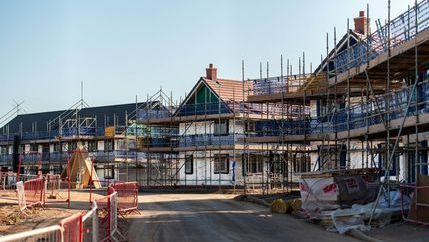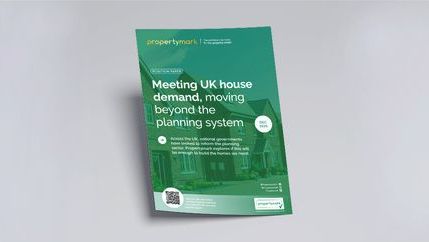
The changes would allow more freedom to develop catchment-specific solutions to the causes of nutrient pollution and potentially kick-start new developments within months of the Bill becoming law.
Cllr Sam Chapman-Allen, Chairman of the District Councils’ Network said:
“Action to tackle the unintended impact of nutrient neutrality rules on local housebuilding is excellent news for district councils. It will unblock tens of thousands of much needed new and affordable homes for more than forty of our member councils. It is good for residents and good for local jobs.
Housing supply at the centre of levelling up plans
Michael Gove MP, Secretary of State for Levelling Up outlined plans to unleash building on underused sites in high-demand regions, along with a new design code to improve the quality of new homes, with the UK Government committing to passing the Levelling Up and Regeneration Bill and updates to the National Planning Policy Framework later in 2023.
Why we need rules about nutrients
Building developments can change the amount of nutrients, such as phosphates and nitrates, that run off into water courses both during construction and because of the extra sewage from completed homes. This can cause water quality to deteriorate which harms wildlife in many ways. One common way is excessive algae growth which depletes oxygen levels and crowds out sunlight, threatening the other aquatic wildlife.
Nutrient neutrality means new developments must ensure that any nutrients that enter the water course must be offset by measures elsewhere in the catchment. For example, a development can show nutrient neutrality by offsetting the same volume of nutrients it creates by supporting the creation of wetlands and buffer strips on farms that can help deal with the nutrient load.
How will rivers be protected?
According to the UK Government, nutrients entering our rivers are a real problem, but the contribution made by new homes is very small compared with that from other sources such as industry, agriculture, and our existing housing stock. The government will significantly expand investment and evolve the Nutrient Mitigation Scheme run by Natural England, doubling investment to £280 million to ensure it is sufficient to offset the very small amount of additional nutrient discharge attributable to up to 100,000 homes between now and 2030.
Supply of homes a key issue for the housing sector
The historic levels of undersupply of homes, exacerbated by empty homes and unused brownfield land, all contribute to people having less choice in where they want to live. While there are several other factors impacting the number of homes that are built every year, Propertymark welcomes reforms to the planning system that increase the supply of homes across all tenures and this proposal follows an announcement Michael Gove MP made on 24 July 2023 to target homebuilding in cities.





